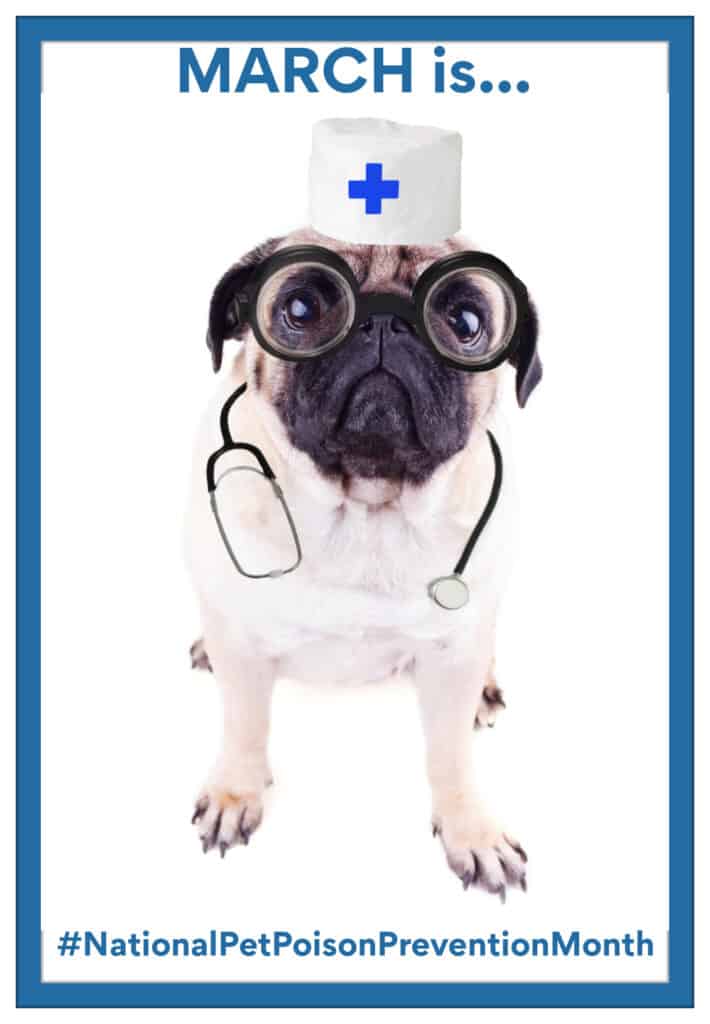Contents
All products and services on Project PAWS are independently selected by our editors, contributors, and veterinary experts. This post contains affiliate links. As an Amazon Associate I earn from qualifying purchases.To learn more, view my disclosure policy.
Last Updated on February 28, 2021 by Aimee
March is National Pet Poison Prevention Month and it’s always a good time as pet owners to educate ourselves on the dangers of accidental pet poisonings and most importantly, how to prevent them.
Project PAWS relies heavily on the guidance from The American Society for the Prevention of Cruelty to Animals (ASPCA) and would like to take this opportunity to review some of the most common household threats to your pet.
WHAT ARE THE TOP 10 HOUSEHOLD THREATS TO PETS?
Nearly 20% of all phone calls to the Animal Poison Control Center (APCC) involve pets who have accidentally swallowed their human’s medications.
Toxicologists at the ASPCA’s Animal Poison Control Center examine its data and release the Top 10 categories of toxins that pets come into contact with. *The data is derived from 213,773 cases of reported animal poisonings examined in 2018, the most recent year available at the time of writing this article.
Let’s take a closer look.
1) OVER-THE-COUNTER (OTC) MEDICATIONS: 19.6%
Over-the-counter medications were the most common group of toxicants pets ingested, with 41,865 cases reaching the APCC. This diverse group of medications includes everything from vitamins, OTC pain medications such as acetaminophen (Tylenol), Non-steroidal anti-inflammatory drugs (Advil, ibuprofen, Aspirin) and certain herbal supplements. Others include:
- Pseudoephedrines (Sudafed)
- Antihistamines
- Cold Medicines
2) HUMAN PRESCRIPTIONS: 17.5%
Prescription medications prescribed for people dropped to number two in 2018 with 36,916 of total cases. ADHD medications, antidepressants and heart medications make up most of these cases. Others include:
- Albuterol found in inhalers
- THC in medicinal marijuana
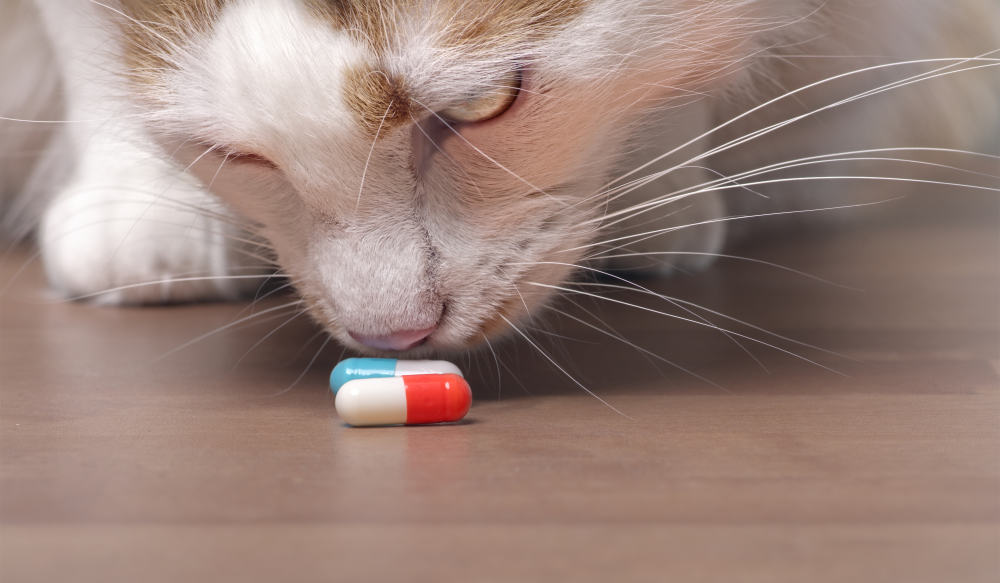
3) FOOD: 11.4%
Food came in at number three with 24,469 cases. Xylitol, grapes and raisins, onions and garlic make up most of the food-related cases. Other items include:
- Alcohol
- Yeast dough
- Caffeine
- Macadamias
- Mushrooms
4) CHOCOLATE: 10.1%
Chocolate came in at 21,635 of APCC cases—working out to almost 60 cases a day! The popularity of chocolate gifts for occasions like Christmas, Valentine’s Day and Easter add to the danger.
READ OUR RELATED ARTICLE: What To Do If Your Dog Eats Chocolate

5) VETERINARY PRODUCTS: 9.3%
Flavored medications and misread labels are a big reason pets run into trouble with veterinary products.

Make sure you review how to give medication with your veterinarian and remember – child proof doesn’t always necessarily apply to pets as they can still bite through the container.
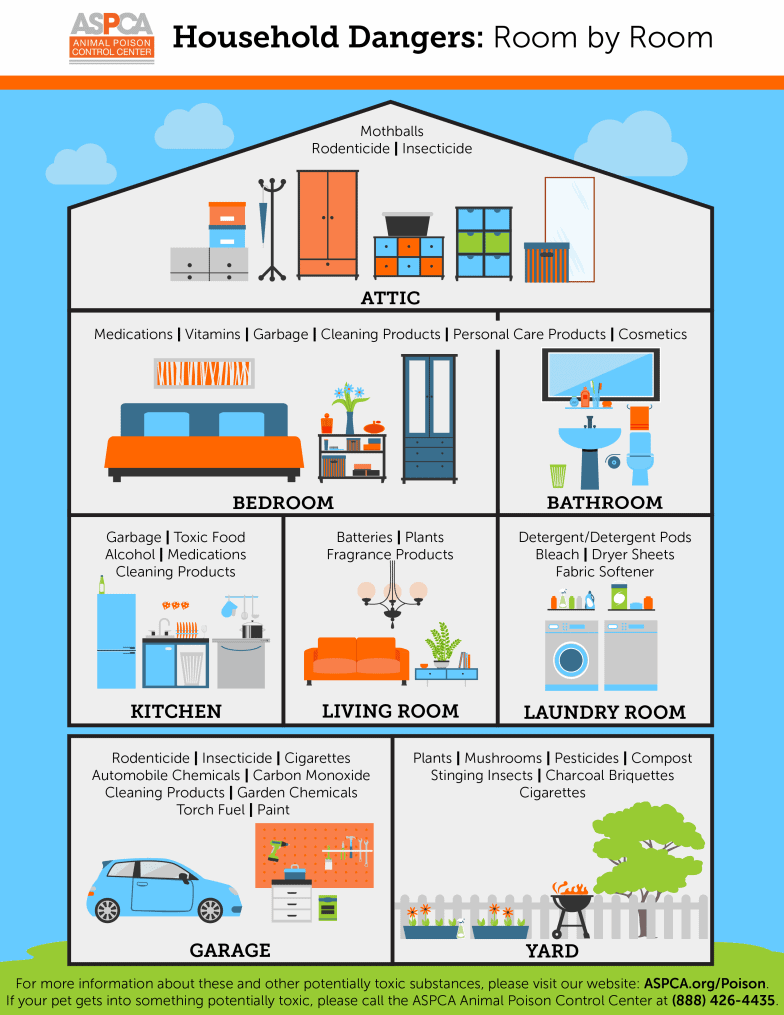
6) HOUSEHOLD ITEMS: 7.3%
Common household items such as paint, glue, and cleaning products are included in this particular category. The proximity of pets and supplies is a common reason for this exposure. Others include:
- Dishwashing detergent
- Bleach
- Household cleaners
- Antifreeze
- De-icing salts
- Toxic garbage
READ OUR RELATED ARTICLES:
7) RODENTICIDES: 6.3%
Rodenticide exposure increased from 2017 to 13,391 of APCC’s caseload. Unfortunately pets, along with rodents, find baits very tasty.
8) INSECTICIDES: 6.2%
Insecticide exposure cases decreased for the second year in a row to 13,260 and include items such as ant baits, bug sprays and yard products. Ant baits use attractants like peanut butter which unfortunately attract pets as well.
9) PLANTS: 5.5%
Common plants remained in ninth place with both indoor and outdoor, as well as prepared bouquets, presenting major problems for pets.
Plants are everywhere, and as a pet owner, you should know which plants to keep from your pets. Lilies are especially dangerous for cats, and sago palms for dogs. Here are just a few others from the list:
- Tulips
- Azalea
- Daffodil
- Foxglove
- Dumbcane
- Yew
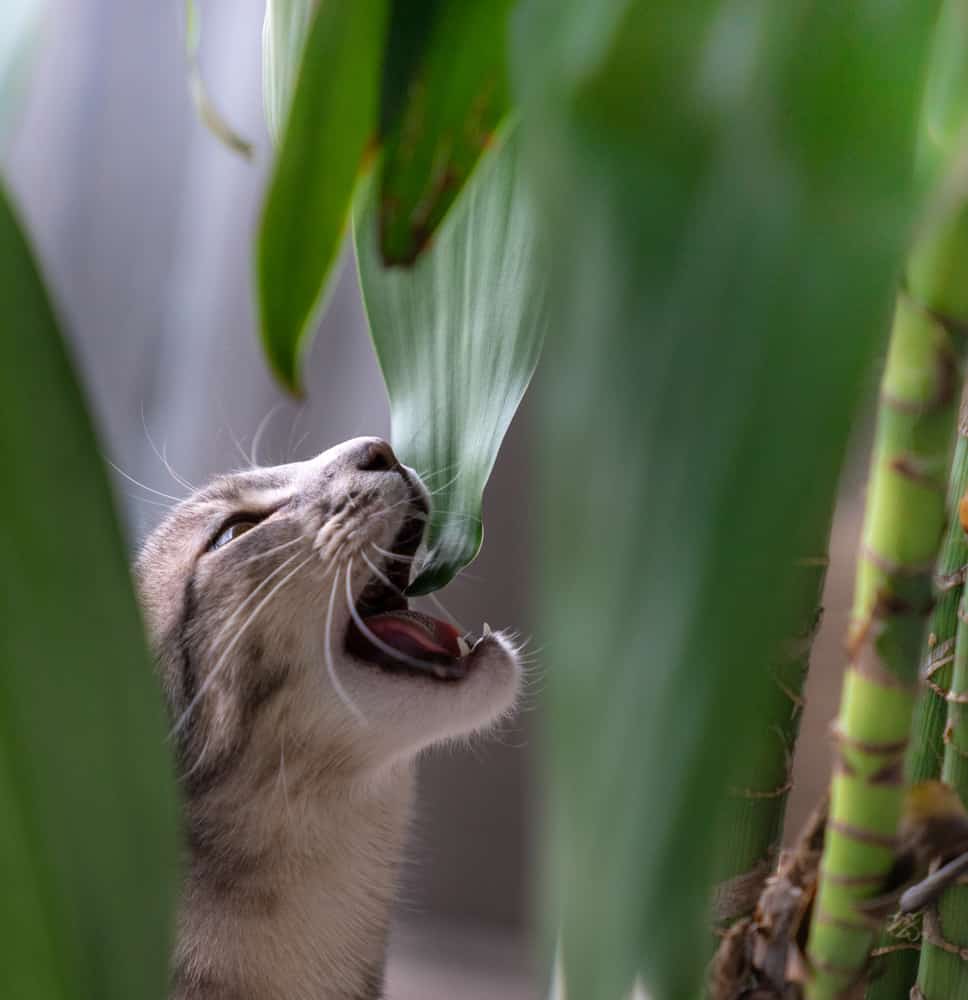
The APCC app has lots of helpful information regarding plant exposures as well as other toxins and you can download this handy app in the app store on your phone. Just look for Animal Poison by ASPCA.
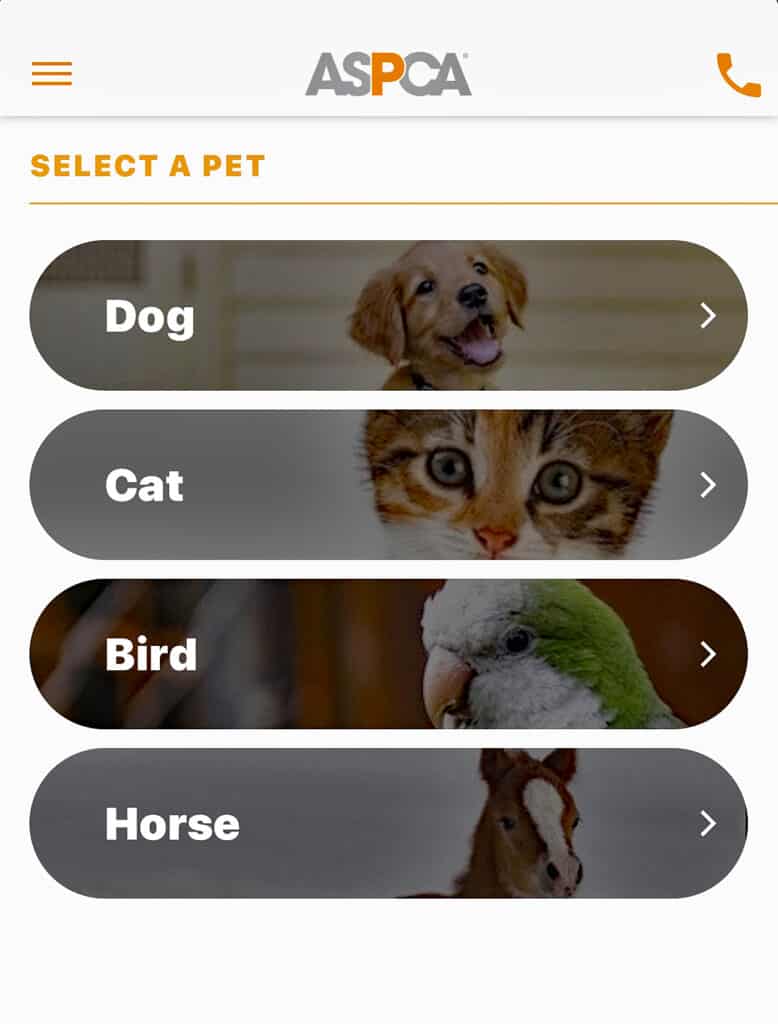
10) GARDEN PRODUCTS:
Fertilizer, bone meal and compost are all products many dogs find irresistible. The APCC also gets a fair number of calls about herbicides and while not necessarily tasty, herbicides are often used in areas frequented by pets.
HOW TO PREPARE FOR A PET EMERGENCY
- Keep your veterinarian’s phone number and directions to your local 24-hour emergency veterinary hospital readily available. Consider keeping a magnet on the refrigerator or a business card in your wallet.
- Prepare a pet first aid kit with any supplies you may need. There are great kits on Amazon already put together!
- Familiarize yourself with the items in this article and keep them out of reach of your pets.
WHAT TO DO IF YOU SUSPECT THAT YOUR PET MAY HAVE INGESTED A POTENTIALLY POISONOUS SUBSTANCE
If you believe your pet has ingested a hazardous item, do not wait for signs to develop — take your pet immediately to the veterinarian! Time is of the essence.
It is also helpful to bring the product with you as your veterinarian will likely call the ASPCA or the manufacturer.
If you enjoyed this article: March is National Pet Poison Prevention Month, please share it with a fellow pet lover!
